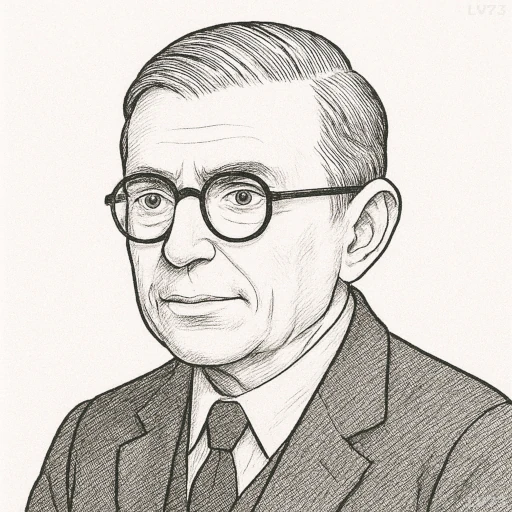“Freedom is what you do with what’s been done to you.”

- June 21, 1905 – April 15, 1980
- Born in France
- Philosopher, novelist, playwright
table of contents
Quote
“Freedom is what you do with what’s been done to you.”
Explanation
In this quote, Sartre highlights the active nature of freedom as something that is not simply given or predetermined, but something that is created through our responses to the circumstances and events we encounter. He suggests that freedom is not defined by the absence of external constraints or suffering, but by the choices we make in relation to them. Even when faced with hardship, trauma, or oppression, our freedom lies in how we respond and shape our own actions and meaning. In Sartre’s existentialism, we are always free in the sense that we can choose how to react to the world and how to define ourselves, regardless of the conditions or events imposed upon us.
Sartre’s view challenges the idea that freedom is simply the ability to act without restrictions. Instead, he suggests that true freedom involves a deeper engagement with one’s circumstances and the responsibility to make something meaningful out of them. This emphasis on choice and response underscores his belief in the importance of personal responsibility, where freedom is a continuous process of self-definition. It is not a static state, but an ongoing act of becoming, in which we assert our autonomy in the face of the past and the external forces that shape us.
In modern life, this quote has profound implications for how we view personal empowerment and resilience. It resonates with individuals who have faced significant challenges, whether personal, social, or economic, and who find their freedom in how they choose to act despite these hardships. In an era where many feel constrained by external circumstances—such as social inequalities, mental health struggles, or systemic oppression—Sartre’s insight suggests that true freedom lies not in escaping these challenges, but in reclaiming agency and transforming the meaning of these experiences. Freedom, in this context, is about resilience, the ability to redefine one’s identity and purpose, regardless of the obstacles in the way.
Would you like to share your impressions or related stories about this quote in the comments section?




